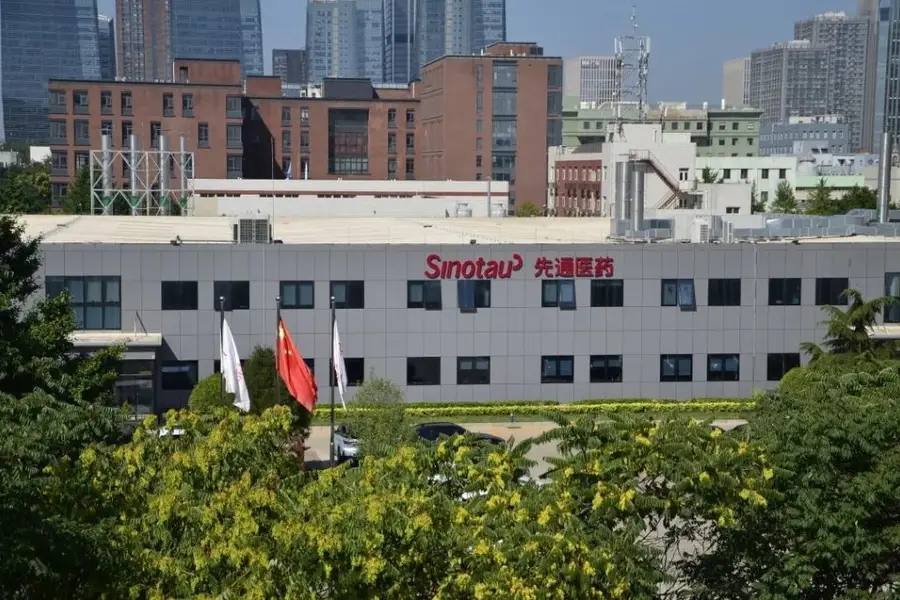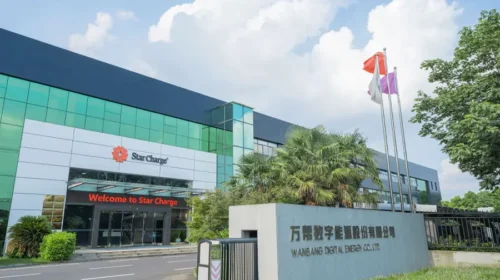Sinotau aims to become Hong Kong’s ‘first nuclear-medicine stock’

The company is China’s first to obtain approval for its innovative radiopharmaceuticals
Key Takeaways:
- Sinotau has filed to list in Hong Kong, offering up two commercialized products and a net loss of 156 million yuan in 2024
- The radiopharmaceutical company has completed at least nine financing rounds, raising over 2.9 billion yuan combined
By Molly Wen
Hong Kong has played host to dozens of innovative drug IPOs since opening up the market to such money-losing companies in 2018. In the years that followed, companies peddling everything from cutting-edge cancer drugs, to antibody treatments and more have sold shares, leaving little room for anything new to impress investors.
But Beijing Sinotau International Pharmaceutical Technology Co. Ltd. is hoping to pique their curiosity nonetheless by becoming the first maker of radiopharmaceuticals to list on the Hong Kong Stock Exchange. The company, which filed its listing application last week, is jumping on a recent bandwagon that has led to a backlog of more than 150 candidates waiting to list in one of Hong Kong’s hottest IPO markets in years.
As a leader in its category, Sinotau is probably hoping to follow in the footsteps of Hengrui Pharmaceuticals (1276.HK; 600276.SH), a leading Chinese innovative drug maker, which debuted strongly in its own Hong Kong IPO late last month.
Founded in 2005, Sinotau specializes in radiopharmaceuticals, or nuclear-based drugs. It is China’s first company to win regulatory approval for its innovative radiopharmaceutical drugs, and has established a full industrial chain of business capabilities, from production of radioactive nuclides for raw materials, to R&D, manufacturing and sales. The company currently has 15 pipelines covering products for use in oncology and neurodegenerative and cardiovascular diseases. It has four core products, two of which are commercially available.
Radiopharmaceuticals are a special class of products containing radioactive nuclides, which are precisely delivered to specific biological targets for diagnostic imaging or therapeutic intervention. Such products are primarily used in oncology, neurology and cardiology. According to a report cited in the prospectus, over 10 radioligand-related drugs have already received regulatory approval globally.
Among those, Novartis’ (NOVN.SW) Pluvicto prostate cancer treatment generated approximately $1.4 billion in revenue last year. Another radiopharmaceutical, Lutathera, for the treatment of GEP-NET, generated $724 million over the same period.
One of Sinotau’s core products is XTR008, a self-developed drug that is also China’s first therapeutic radioligand, targeting Lu-labeled somatostatin receptors (SSTR) for the treatment of neuroendocrine tumors. The product has completed Phase Three clinical trials, and its new drug marketing application was accepted by China’s drug regulator in April. The company expects the product to be approved for sale in 2026. The listing document shows that in 2024, the global market size for therapeutic radioligands targeting SSTR was worth about $700 million, and is expected to reach $3.4 billion by 2035.
Another self-developed product, XTR005, is the first PET tracer approved in China for the diagnosis of Alzheimer’s disease. It can measure the levels of Aβ plaques in the brains of adult patients during PET imaging, aiding in the assessment of Alzheimer’s disease and other causes of cognitive decline. The product was officially launched in January, meaning Sinotau has yet to include its revenue contributions in any of its financial reports. Another commercialized product, the company’s adenosine injection, is an adjunct in the diagnosis of coronary artery disease that only contributes limited revenue.
Radiopharmaceutical boom
Despite having two products for sale, Sinotau’s profitability remains weak. Its primary income comes from providing contract services for radiopharmaceutical development to hospitals and pharmaceutical companies, as well as licensing revenue it receives from a HER3 monoclonal antibody pipeline licensed to Duality Biotherapeutics in 2021.
In 2023 and 2024, Sinotau recorded a modest 10.20 million yuan ($1.42 million) and 44.10 million yuan in revenue, respectively. Contract services contributed 27.16 million yuan in 2024, while product sales only contributed 3.74 million yuan that year. Over the past two years, the company reported net losses of 309 million yuan in 2023 and 156 million yuan last year. Like many drug companies, Sinotau’s big cash drain is its R&D spending, which totaled 297 million yuan in 2023 and 228 million yuan last year.
Sinotau’s cash stood at 472 million yuan at the end of 2024, down 40% from a year earlier, with its current reserves only enough to cover about two years of R&D at current spending levels. However, high R&D spending is likely to continue as many of Sinotau’s products are entering their late clinical stages. What’s more, the company will need to spend heavily on XTR008 after its expected approval next year, on initiatives like market education, channel development, and capacity expansion during the initial commercialization period.
Sinotau has completed at least nine funding rounds since 2017, raising a cumulative total of over 2.9 billion yuan. It secured over 1.1 billion yuan of that in July 2023 alone, setting a record for a single financing round in China’s radiopharmaceutical sector. Well-known institutions, such as SDIC Venture Capital, Jinshi Investment and Citic Securities, have all bet on this radiopharmaceutical frontrunner. Following completion of a pre-IPO funding round last December, Sinotau’s post-investment valuation reached 5.19 billion yuan.
Record-breaking annual sales of $1.4 billion for Novartis’ Pluvicto have sparked a global investment boom in radiopharmaceuticals. The MedAlpha database from PharmaGO showed about 40 early-stage financing deals occurred in the radiopharmaceutical sector last year, worth more than $1.5 billion, up 27% year-on-year.
Sinotau hopes to ride that global radiopharmaceutical boom to a strong reception for its Hong Kong IPO, aiming to secure a high valuation and expand its financing channels. But its valuation could still face some challenges. As a comparison, China Isotope & Radiation Corp. (1763.HK), a leading radioactive nuclide supplier, has already achieved profitability but is only worth HK$4.1 billion ($523 million) – less than Sinotau’s value after its funding last December. Sinotau’s ability to get a better reception from Hong Kong investors will depend on being able to sell itself as a drug innovator in its niche sector.
To subscribe to Bamboo Works weekly free newsletter, click here




